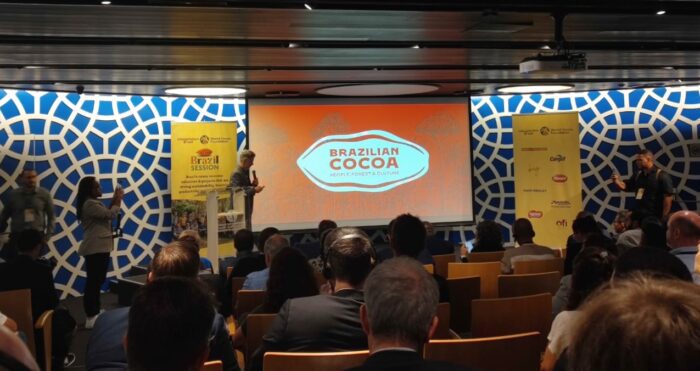
By 2030, Brazil has the potential to account for 13% of the global cocoa market and rank among the top three producers in the world, generating US$2.3 billion in revenue and up to 300,000 jobs, according to a report by Instituto AYA. Focusing on this potential and aiming to reach strategic markets such as Europe and the United States, the Association of Cocoa Processing Industries (AIPC), the Cocoa Innovation Center (CIC), CocoaAction Brazil, Instituto Arapyaú, and other sector organizations have joined forces to launch the Brazilian Cacao – People, Forest, and Culture movement.
The sector initiative aims to highlight the attributes of the national product, mainly cultivated by family farmers on small properties, where agroforestry practices contribute to forest preservation and climate change mitigation. Brazil has also invested in producing high-quality almonds, gaining recognition in international awards.
“Brazilian cacao is much more than a product; it is a symbol of sustainability, culture, and innovation. In addition to generating employment and income, its production preserves forests and promotes the development of local communities,” says Ricardo Gomes, Territorial Development Manager at Instituto Arapyaú.
According to Cristiano Villela, scientific director of CIC, the initiative will help attract international partners with environmental, social, and governance (ESG) commitments. “There is a growing global demand for agricultural products that respect the environment and do not result in deforestation. Brazilian cacao is well positioned to meet this need,” explains Villela.
The sector movement also includes training actions for cocoa producers, with dedicated training on sustainable agricultural practices, as well as strategies to attract importers and millers from demanding markets. There is also a strong focus on raising awareness about the benefits of sustainable cacao and collaborating with public policies that strengthen the production chain.
Anna Paula Losi, executive president of AIPC, emphasizes that the union of public and private efforts is essential to make Brazil a protagonist in the international market, expanding exports of sustainable cacao. “We are prepared to increase production and meet the growing global demand, always focusing on sustainability and the inclusion of local communities in this chain,” she says.